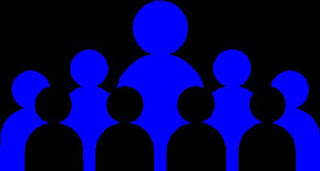
The modern European (Rechtstaat), or state based on Rule of Law, rests on Roman legal procedures but also on the tradisional of an unique system of checks and balances created in the late medieval period. This system has been influenced by a growth of the nation of the immunity of certain groups and persons from the power of the ruler (feudal king), along with the conception of the right of resistance to unjust authority and that of contract as a mutual engagement freely undertaken by free persons, derived form the feudal relation of vassalage.
FRENCH CONCEPTION
The development of the rule of law conception in France can be characterized by two peculiar features of the Frecch concept :
GERMAN CONCEPTION
Also in Germany, rule of law at first meant Gesetzesstaat, in as accordance with the thin conception of formal legality. The term Rechtstaats was first used by Johan Wilhelm Placidus in his Literatur der Staatslehre. Ein Versuch. But before the second world war, the German legal system had itself more the character of a Gesetzesstaats of rule of law with its main focus on the principle of legality in the sense of administrative action to be submitted to law (legal rules).
Since 1949, when under the influence of the allied forces the new Grundgesetz or Basic Law (constitution) came into force, Germany has a rulr of law in the sense of formal legality and democracy, and a constitutional court that controls whether statutory law and judicial decisions are in accordance with the constitutions and the fundamental rights mentioned in it.
DUTCH CONCEPTION
As in France and Germany, the Ducth rule of law has fore a very long time stressed the importance of parliamentary sovereignty more than constitutional sovereignty with its a accent of human rights. Until now there is no constitutional court in the Netherlands and the juges is forbidden to evaluate whether a statute is in accordance with the constitution.
FRENCH CONCEPTION
The development of the rule of law conception in France can be characterized by two peculiar features of the Frecch concept :
- No French term existed as an equivalent of the term used to represent the conception of rule of law until the fifth republik (1958)
- France lacked real constitutionalism, as the Frech system did not very much revere constitutions and remedies connected to it. Between 1789 and 1959, France had 16 different constitutions (of which 5 in the revolutionary years between 1971 and 1804).
GERMAN CONCEPTION
Also in Germany, rule of law at first meant Gesetzesstaat, in as accordance with the thin conception of formal legality. The term Rechtstaats was first used by Johan Wilhelm Placidus in his Literatur der Staatslehre. Ein Versuch. But before the second world war, the German legal system had itself more the character of a Gesetzesstaats of rule of law with its main focus on the principle of legality in the sense of administrative action to be submitted to law (legal rules).
Since 1949, when under the influence of the allied forces the new Grundgesetz or Basic Law (constitution) came into force, Germany has a rulr of law in the sense of formal legality and democracy, and a constitutional court that controls whether statutory law and judicial decisions are in accordance with the constitutions and the fundamental rights mentioned in it.
DUTCH CONCEPTION
As in France and Germany, the Ducth rule of law has fore a very long time stressed the importance of parliamentary sovereignty more than constitutional sovereignty with its a accent of human rights. Until now there is no constitutional court in the Netherlands and the juges is forbidden to evaluate whether a statute is in accordance with the constitution.












































